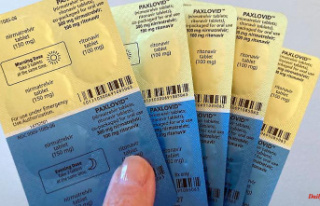100 tons of fish carcasses: That is the latest estimate by environmentalists for the disaster in the Oder. What killed the animals is still unclear. There may be more than one reason. Concerns are also growing on the Szczecin Lagoon.
What killed the fish in the Oder? Did the mass extinctions have a single cause or were multiple factors contributing? Those responsible and citizens are hoping for answers to these questions today. The Federal Environment Ministry announced on Monday that the results might then be available. So far, one thing is clear: According to the Polish authorities, mercury is not the reason.
According to an estimate by the BUND environmental association, up to 100 tons of fish have died in the Oder in the past few days. 500 kilometers of river are affected. This also causes concern in Mecklenburg-Western Pomerania. However, according to official information, no effects were known in the north-east by Monday afternoon. "That's the good news," said District Administrator of Vorpommern-Greifswald Michael Sack.
Nevertheless, people on the foothills of the Szczecin Lagoon are called to be careful. The Schwerin Ministry of Health advises against swimming for several bathing areas. The district and the State Ministry for the Environment had previously recommended refraining from angling and fishing or removing water. Oil barriers are intended to prevent fish carcasses from spreading in the lagoon. The Oder flows into the lagoon, which at around 900 square kilometers is about twice the size of Lake Constance. Two thirds of it belongs to Poland. Water connections to the Baltic Sea run from there.
According to government information, Polish authorities had the first indications at the end of July that there were masses of dead fish floating in the river. Since last week there has also been an alarm mood in Germany. Citizens should not touch the Oder water. Volunteers fished tons of smelly carcasses out of the water to be burned at the PCK refinery site in Schwedt. The long-term consequences for fish, animals and plants in the Oder region and the Baltic Sea cannot be foreseen.
Both the federal government and the state of Brandenburg reiterated their dissatisfaction with the lack of information from Poland on Monday. During a visit to Lebus an der Oder, where he wanted to get an idea of the situation, Brandenburg's Prime Minister Dietmar Woidke criticized the information as being "a little bit" or "not at all". The SPD politician reiterated: "We still don't know exactly what caused these symptoms of poisoning in the fish." However, the German Anglers' Association and the German Fishing Association criticized the German authorities. "From the outside, the activities of the German authorities did not look like sovereign crisis management," it said in a joint statement. The chairman of the German-Polish parliamentary group in the Bundestag, Paul Ziemiak, called for "complete clarification". Instead of assigning blame, it is now about solving "this dangerous environmental problem" together, said the CDU politician of the Funke media group.
The Polish side is in the process of searching for 300 substances in its central laboratory, reported Brandenburg's Environment Minister Axel Vogel on site. According to his assessment, there is probably more than one cause for the fish kill. The drought and the low water supply almost certainly had a part in it. The entire ecosystem of the Oder is damaged.
Poland's Prime Minister Mateusz Morawiecki said on Friday that the fish kill was apparently caused by the discharge of a "huge amount" of chemical waste. The Polish government offered a reward of more than 200,000 euros for the investigation.
(This article was first published on Tuesday, August 16, 2022.)












